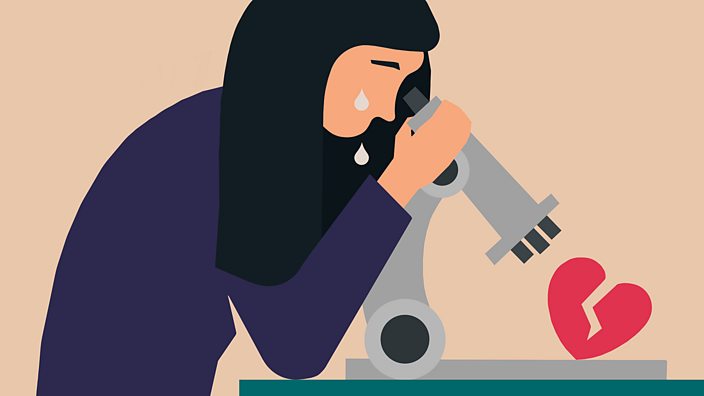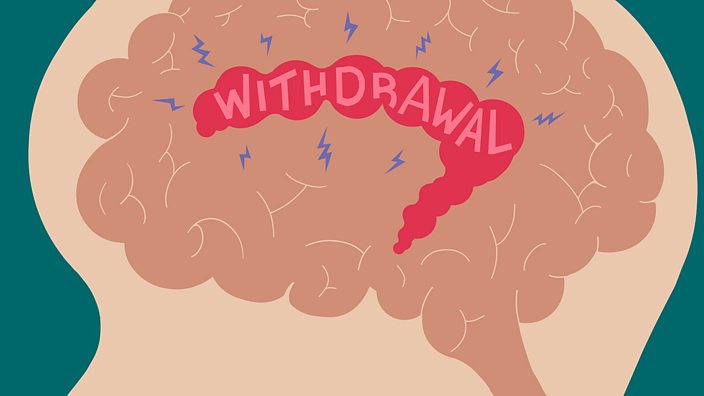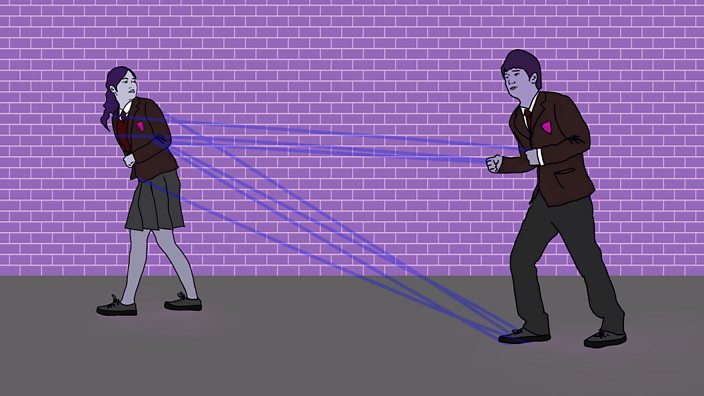 BBC Three / David Weller
BBC Three / David WellerHacking heartbreak: the ultimate guide to getting over 'The One'
How to heal a broken heart, according to science
There is little worse than heartbreak. Those who know, know. And those who've been through it will have had the utmost sympathy for Love Island’s Georgia Steel last week, as she watched Josh Denzel - who she had previously been coupled-up with - walk back into the villa hand-in-hand with new girl Kazimir Crossley.
I last experienced heartbreak exactly one year ago. It wasn’t, like Georgia, in front of a TV audience of millions. But heartbreak is heartbreak – on or off screen.
In my case, a love full of lifelong promise had come very suddenly to an end. I had been about to move in with the person I loved. And then he changed his mind. It was a massive shock to the system, and I felt like I would never be quite the same.
I was no stranger to break-ups. My usual coping strategy was far from unique: go out, get drunk, forget for a moment, repeat. But this had always proved ineffective medicine, because you can never really forget. Not properly.
So last year, I decided to try something else. Aged 32, I left London – where I’d lived for 27 years of my life – and moved to the countryside.
The thought of having to exist in that state of having to 'get over' the relationship, while in constant fear I’d run into my ex – on the bus, in the street, round every corner – was unbearable. I was sure that a fresh start somewhere completely different to the city would mend me. I may not have had much money (a couple of hundred quid in a savings account), but I had a project to do, and was good at budgeting, so I was determined to make it last as long as I could.
For the next eight months I immersed myself in – for want of a better phrase – ‘heart therapy’. I walked for miles. I swam in the sea. I sobbed. And I worked harder than I had ever worked before. And yet, the all-consuming sadness prevailed.
 BBC Three / David Weller
BBC Three / David WellerI realised that country life, for a long-term city dweller like me, was completely isolating. I was lucky to have the support of my family, but found I really did need my friends. After some time, most stopped calling, because life goes on, doesn't it? Promised visits never materialised, and I felt more alone than ever before.
It made me question: is there any such thing as a good break-up? Does a positive way to handle heartbreak really exist? Back then I didn't have a guide. Now, a year on, I'm writing this piece in order to find out.
What is heartbreak?
“Essentially, it is a state of devastating emotional loss,” explains behavioural psychologist and relationship coach, Jo Hemmings. “While different for all of us, the intense feelings of sadness, grief, and the overwhelming sense of never being able to get past the pain, are common.
“In brain terms, the areas responsible for feeling physical pain ‘light up’ in the same way as if you’re actually in pain. It also triggers withdrawal symptoms very similar to those seen in [drug] addicts.”
For me, this felt like a total inner body burn.
Managing those withdrawal symptoms is the real struggle. The temptation to get another hit – to call an ex, to plead with them, to remind them about you and what you had - can seem insurmountable.
“In emotional terms, a bad break-up will plunge you into the five stages of grief – denial, anger, bargaining, depression, and, finally, acceptance,” says Jo. “There are often relapses in this process.”
 BBC Three / David Weller
BBC Three / David WellerHow to get over heartbreak
Managing heartbreak, in my view, is an art. But that doesn’t mean we can’t take anything from science. A number of studies have analysed what really happens, and how we can deal with it.
Research recently published in the Journal of Experimental Psychology, for example, looked at the effectiveness of three coping strategies: thinking bad things about an ex, owning and accepting your feelings of love for a former partner, and distracting yourself by thinking good thoughts about nothing to do with your ex.
While none were perfect, all three served to lower the participants’ emotional responses to their former partners, so a combination of the three seems a good place to start.
Say it with me: ‘Your ex had horrendous morning breath and an unhealthy admiration for the sound of their own voice – gross.’ Then: ‘It’s fine to have loved someone, that’s a good thing – even if you now see that that person is gross'. And finally: ‘Isn’t the weather great at the moment?’
Dee Holmes, a relationship expert, suggests another good starting point: "Allow yourself some ‘wallow’ time. I don’t think it’s unreasonable to take a day off work - if you are in shock it may be the safest action, depending on your job.
“Talk to your friends and keep a diary of how you feel. But don’t let it dominate your life. And [don’t] make rash decisions. You may think you can’t bear to live in the house without your ex, but actually, once you’ve changed things around and maybe painted the walls, you might feel you can stay.”
Jo recommends unfollowing your ex on social media. “Remove or delete anything that triggers painful memories, like photos or texts,” she says. “It sounds brutal, but does actually help with healing.”
She adds: “Don’t text or call – especially late at night. Draft texts and delete them, or write your feelings down privately. Don’t stalk or check up on them.”
As per the stages of grief, anger can also play a part. Indeed, the rage I felt at times was volcanic. Anger undoubtedly has its benefits – for instance, it’s hard to miss someone you decide you can’t stand. But some experts advise against this form of reverse psychology. One life coach video called How To Get Over Someone says the way to do it is not to convince yourself you never liked them in the first place, but to analyse what it was about them you did like. Then, ask yourself, 'Would it be possible to find such qualities in a future partner?'
 BBC Three / David Weller
BBC Three / David WellerSo, what did I like about my ex? For the most part, he was kind.
Are there other kind people in the world? Well, yes.
I found dissecting my relationship in this way helpful. Not in the initial stages of the break-up – the ‘plenty more fish in the sea’ theory had no weight at the beginning, and when people offered it by way of consolation, it only compounded the belief they didn’t understand.
But over time, accepting the idea that my ex-lover wasn’t perfect, and that the parts of him I found attractive could be found in others, was an important milestone to reach.
Combine these points together and a plan emerges: accept the way you feel and allow yourself to mourn; talk to family and friends and, if necessary, a counsellor; write a diary; avoid social media; delete painful triggers; distract yourself; don’t make rash decisions; do not have contact with your ex; think of their downsides; and, after a time, think about their plus sides and consider that these qualities might be found in someone else.
And then it’s just a matter of time.
How long does the healing process take?
'You Can’t Hurry Love' sang The Supremes, and sadly, you can’t hurry getting over it either. One study claims it takes around three months (11 weeks to be precise) for a person to feel more positive about their break-up.
As I said, though, heartbreak is not a science. Personally, it took me six months before I felt ready to move on. By that point, however, I really was ready. And much to my surprise - and good fortune - the person I found renewed my faith in the power of a meaningful connection. I haven’t shed a tear for my ex since.
Which leads me to conclude with a personal theory: that getting over heartbreak is a paradoxical challenge, so difficult because of its simplicity. But the trick, in essence, is this: to remember that you are worthy of love. And that in time, it will find you again.
Read more:















